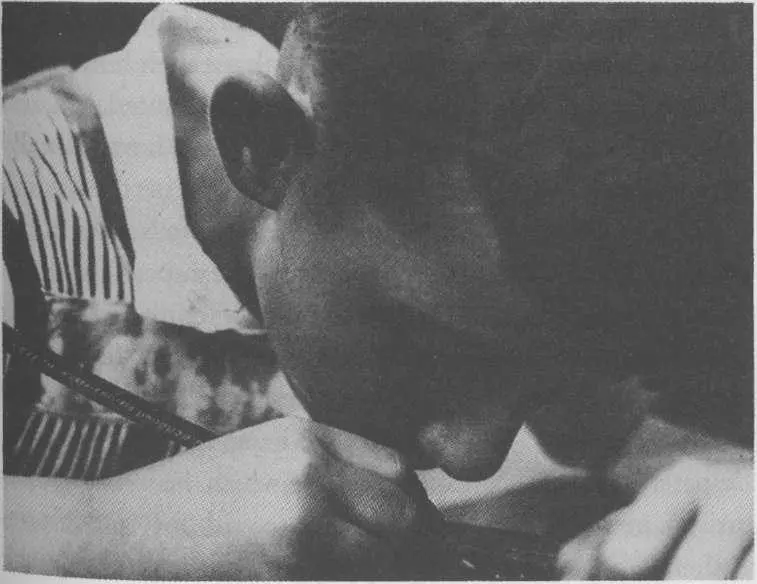As I expected, I have remained in Manchester to this day, Ferber continued. It is now twenty-two years since I arrived, he said, and with every year that passes a change of place seems less conceivable. Manchester has taken possession of me for good. I cannot leave, I do not want to leave, I must not. Even the visits I have to make to London once or twice a year oppress and upset me. Waiting at stations, the announcements on the public address, sitting in the train, the country passing by (which is still quite unknown to me), the looks of fellow passengers — all of it is torture to me. That is why I have rarely been anywhere in my life, except of course Manchester; and even here I often don't leave the house or workshop for weeks on end. Only once have I travelled abroad since my youth, two years ago, when I went to Colmar in the summer, and from Colmar via Basle to Lake Geneva. For a very long time I had wanted to see Griinewald's Isenheim paintings, which were often in my mind as I worked, and especially the "Entombment of Christ", but I never managed to master my fear of travelling. So I was all the more amazed, once I had taken the plunge, to find how easily it went. Looking back from the ferry at the white cliffs of Dover, I even imagined I should be liberated from that moment; and the train ride across France, which I had been particularly afraid of, also went very well. It was a fine day, I had a whole compartment, indeed the entire carriage to myself, the air rushed in at the window, and I felt a kind of festive good spirits rising within me. About ten or eleven in the evening I arrived in Colmar, where I spent a good night at the Hotel Terminus Bristol on the Place de la Gare and the next morning, without delay, went to the museum to look at the Grunewald paintings. The extreme vision of that strange man, which was lodged in every detail, distorted every limb, and infected the colours like an illness, was one I had always felt in tune with, and now I found my feeling confirmed by the direct encounter. The monstrosity of that suffering, which, emanating from the figures depicted, spread to cover the whole of Nature, only to flood back from the lifeless landscape to the humans marked by death, rose and ebbed within me like a tide. Looking at those gashed bodies, and at the witnesses of the execution, doubled up by grief like snapped reeds, I gradually understood that, beyond a certain point, pain blots out the one thing that is essential to its being experienced — consciousness — and so perhaps extinguishes itself; we know very little about this. What is certain, though, is that mental suffering is effectively without end. One may think one has reached the very limit, but there are always more torments to come. One plunges from one abyss into the next. When I was in Colmar, said Ferber, I beheld all of this in precise detail, how one thing had led to another and how it had been afterwards. The flood of memory, little of which remains with me now, began with my recalling a Friday morning some years ago when I was suddenly struck by the paroxysm of pain that a slipped disc can occasion, pain of a kind I had never experienced before. I had simply bent down to the cat, and as I straightened up the tissue tore and the nucleuspulposus jammed into the nerves. At least, that is how the doctor later described it. At that moment, all I knew was that I mustn't move even a fraction of an inch, that my whole life had shrunk to that one tiny point of absolute pain, and that even breathing in made everything go black. Until the evening I was rooted in one place in a semi-erect position. How I managed the few steps to the wall, after darkness had fallen, and how I pulled the tartan blanket that was hanging

on the back of the chair over my shoulders, I no longer remember. All I now recall is that I stood at that wall all night long with my forehead against the damp, musty plaster, that it grew colder and colder, that the tears ran down my face, that I began to mutter nonsense, and that through it all I felt that being utterly crippled by pain in this way was related, in the most precise manner conceivable, to the inner constitution I had acquired over the years. I also remember that the crooked position I was forced to stand in reminded me, even in my pain, of a photograph my father had taken of me in the second form at school, bent over my writing. In Colmar, at any rate, said Ferber after a lengthy pause, I began to remember, and it was probably those recollections that prompted me to go on to Lake Geneva after eight days, to retrace another old memory that had long been buried and which I had never dared disturb. My father, said Ferber, beginning anew, was an art dealer, and in the summer months he regularly put on what he called special exhibitions in the lobbies of famous hotels. In 1936 he took me with him to one of these exhibitions at the Victoria Jungfrau in Interlaken and then to the Palace at Montreux. Father's shows usually consisted of about five dozen salon pieces in the Dutch manner, in gold frames, or Mediterranean genre scenes in the style of Murillo, and deserted German landscapes — of these, I remember a composition that showed a gloomy heath with two juniper trees, at a distance from each other, in the blood-red glow of the setting sun. As well as I could, at the age of twelve, I helped Father with the hanging, labelling and despatch of these exhibition pieces, which he described as artistic merchandise. By way of a reward for my efforts, Father, who loved the Alps passionately, took me up the Jungfraujoch in the mountain railway, and from there he showed me the largest glacier in Europe, gleaming snow-white in the midst of summer. The day after the exhibition at the Palace closed, we drove out of Montreux in a hired car, some way along the Rhone valley, and presently turned off to the right, up a narrow and twisting road to a village with a name that struck me as distinctly odd, Miex. From Miex it was a three-hour walk, past the Lac de Tanay, to the summit of Grammont. All the noontide of that blue-skied day in August I lay beside Father on the mountaintop, gazing down into the even deeper blue of the lake, at the country across the lake, over to the faint silhouette of the Jura range, at the bright towns on the far bank, and at St Gingolph, immediately below us but barely visible in a shaft of shadow perhaps fifteen hundred metres deep. On my train journey through Switzerland, which truly is amazingly beautiful, I was already remembering these scenes and images of thirty years before, said Ferber; but they were also strangely threatening, as I saw with increasing clarity during my stay at the Palace, so that in the end I locked the door of my room, pulled down the blinds, and lay in bed for hours at a stretch, which only worsened my incipient anxiety. After about a week it somehow occurred to me that only the reality outside could save me. But instead of strolling around Montreux, or going over to Lausanne, I set off to climb Grammont a second time, regardless of my condition, which by now was quite frail. The day was as bright as it had been the first time, and when I had reached the top, utterly exhausted, there below me was the country around Lake Geneva once again, seemingly completely unchanged, and with no trace of movement but for the one or two tiny boats that left their white wakes on the deep blue water as they proceeded, unbelievably slowly, and the trains that went to and fro at intervals on the far bank. That world, at once near and unattainably far, said Ferber, exerted so powerful an attraction on him that he was afraid he might leap down into it, and might really have done so had not a man of about sixty suddenly appeared before him — like someone who's popped out of the bloody ground. He was carrying a large white gauze butterfly net and said, in an English voice that was refined but quite unplaceable, that it was time to be thinking of going down if one were to be in Montreux for dinner. He had no recollection of having made the descent with the butterfly man, though, said Ferber; in fact the descent had disappeared entirely from his memory, as had his final days at the Palace and the return journey to England. Why exactly this lagoon of oblivion had spread in him, and how far it extended, had remained a mystery to him however hard he thought about it. If he tried to think back to the time in question, he could not see himself again till he was back in the studio, working at a painting which took him almost a full year, with minor interruptions — the faceless portrait "Man with a Butterfly Net". This he considered one of his most unsatisfactory works, because in his view it conveyed not even the remotest impression of the strangeness of the apparition it referred to. Work on the picture of the butterfly man had taken more out of him than any previous painting, for when he started on it, after countless preliminary studies, he not only overlaid it time and again but also, whenever the canvas could no longer withstand the continual scratching-off and re-application of paint, he destroyed it and burnt it several times. The despair at his lack of ability which already tormented him quite enough during the day now invaded his increasingly sleepless nights, so that soon he wept with exhaustion as he worked. In the end he had no alternative but powerful sedatives, which in turn gave him the most horrific hallucinations, not unlike those suffered by St Anthony on the temptation panel of the Isenheim altar-piece. Thus, for instance, he once saw his cat leap vertically into the air and do a backward somersault, whereupon it lay where it fell, rigid. He clearly remembered placing the dead cat in a shoebox and burying it under the almond tree in the yard. Just as clearly, though, there was the cat at its bowl the next morning, looking up at him as if nothing had happened. And once, said Ferber in conclusion, he dreamt (he could not say whether by day or by night) that in 1887 he had opened the great art exhibition in the purpose-built Trafford Park, together with Queen Victoria. Thousands of people were present as, hand in hand with the fat Queen, who gave off an unsavoury odour, he walked through the endless halls
Читать дальше













